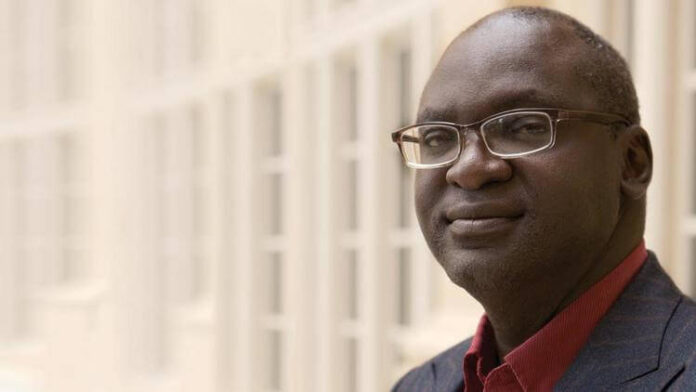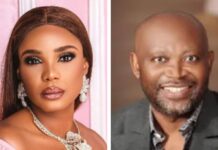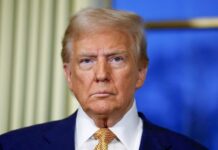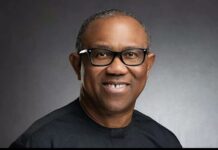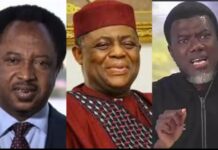The Mischief Rule: Why Tinubu cannot win
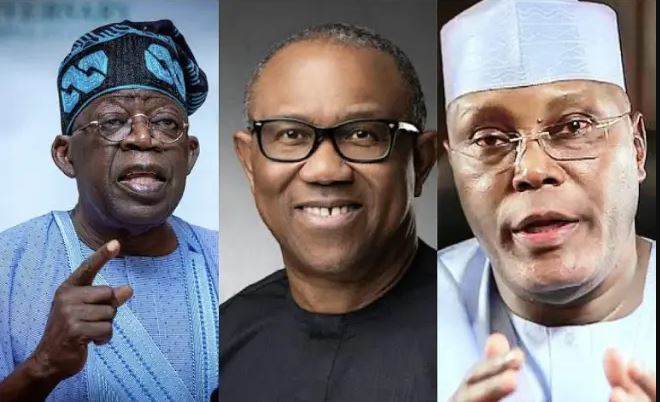
By Emmanuel Ogebe
I got the hearing notice on Friday that the presidential election petition closing arguments would be in four days’ time on August 1. Much as I tried to be there, the ticket cost of $3,250.00 (over N2.6 million) economy class made me reconsider the value of attendance to monitor the proceedings.
The “adoption of final addresses” as it is called in Nigeria or “closing arguments” as it is called in USA or “jury summation” as it is called in some jury system countries are usually the penultimate phase of the winding up of a trial. It is where the lawyers summarize their IRAC (Issue, Rule, Analysis and Conclusion.)
I read the petitioners’ response to the respondents’ final addresses (which therefore was a blend of both parties’ points of view) and I could see the end of the matter therefrom.
After the filing of final addresses, the individual justices would have a sense of which is the superior argument and would’ve debated the issues with one another in private conference.
The final addresses allow the lawyers to emphasize their key points and answer questions that the justices may still have. Thereafter the court adjourns for judgment, prior to which the justices will conference again, take a vote on the judgment and then individually write and circulate draft judgments to one another.
As such the verdict of the court is an entirely democratic process. The majority wins but the minority still has the right to express their opinion in a minority judgment.
That minority judgment maybe revived into the majority opinion on appeal to the Supreme Court so the justices must write their dissenting opinion as thoroughly and persuasively as though it were the main majority judgment itself.
Notwithstanding the above, judges who are not writing the lead judgment or the lead dissent, can merely, if they so choose, write a sentence or two stating they “agree” with either the lead majority ruling or the minority ruling. They can either add additional reasons why or simply adopt the reasons stated in the lead or minority ruling.
Over the years, I have written a couple of articles on presidential election trials including “Why Yar’adua cannot win” and “Why Goodluck cannot win.”
Both articles however had a different take from the current one “Why Tinubu cannot win.”
In this article, I will attempt to summarize the key questions to be resolved in the case.
Q1: Does the US drug forfeiture disqualify Tinubu?
In all honesty, I initially was not fully persuaded that this was a disqualifier until I read Judge Bates judgment which made clear the forfeiture was for “narcotics trafficking or money laundering”.
Labour Party’s final address won me over by showing that both the US and Nigeria view forfeiture as a fine or criminal sanction and the latter does not require a formal conviction.
It is apparent that the mischief intended to be corrected by the drafters was to stop persons with a record of financial dishonesty at home and abroad from ascending into office to repeat same. As we saw in the case of James Ibori who was convicted in UK and in Nigeria prior to becoming Governor, he did the same thing on a grander scale while in office only to leave and be imprisoned again in UK!
Q2: Does forgery and falsehoods on college and national service certificates and Guinean citizenship disqualify Tinubu?
There is no doubt that he furnished a fake certificate, certificates with different names and gender, lied about schools attended, national service and Guinean citizenship.
The mischief here is no doubt to prevent fraudsters and disloyal elements from entering into government.
Q3: Does Gov Shettima’s double nomination disqualify them both?
The dual nomination overlap for a day appears to be well established. The issue is whether there are any extenuating circumstances in law or whether this is a strict liability infraction the mischief being that one person shouldn’t gamble with political nominations to the detriment of others.
Q4: Did INEC disregard its own guidelines?
It is abundantly proven that INEC violated its own regulations and that these had the force of law. Indeed LP’s brief emphasized that non-compliance by INEC officials in uploading the results is a criminally punishable offense!
The mischief here to be mitigated is the manipulation of physical results to distort election outcomes. Since this was violated, thus undermining election integrity after billions were wasted, I believe referrals for prosecution are in order.
Q5: Was the constitutional requirement met for declaration of a president-elect?
In my opinion, the petitioners’ established clearly that the 25% vote requirement in Abuja was mandatory and INEC itself admitted Tinubu did not have it.
The 25% requirement did not exist in prior constitutions and as such was not added there by mistake but intentionally by the drafters.
Q6: Did the volume of votes produce Tinubu as president-elect?
This was a very intriguing issue. INEC apparently stated and listed 21 states it admitted were won by PDP in its court filings!
INEC via its IREV also showed that Rivers state was won by LP and not APC as declared. Further, LP’s expert witness established that Benue state as well was won by LP giving them more states than the other two parties!
Finally, the 18,000+ blurred IREV votes and 39,000+ inaccessible votes on IREV affected about 2.5 million and 5.5 million votes respectively surpassing the dubious margin of victory!
Per LP’s final address:
“The Data Analysis for the 18,088 polling units being blurred copies of Form EC8A, show that the total number of accredited voters in these polling units were 2,565,269, and 9,165,191 voters who collected their PVCs in these polling units… far more than the purported margin of lead in the INEC announced result of the election, between the 2nd Respondent as the Candidate of the 4th Respondent and the Petitioners, for which the election result purportedly declaring the 2nd and 3rd Respondents as the winners of the election ought to be nullified/invalidated.
“The unchallenged Data Analysis further confirm that, the purported result of the election in the polling unit in Form EC8A in 39,546 polling units were inaccessible on the IReV. In these 39,546 polling units, 23,119,298 registered voters collected their PVCs, whilst 5,532,553 voters were accredited to vote in these polling units… far more than the purported margin of lead in the INEC announced return of the election, for which the election itself ought to be declared as inconclusive, invalid and or null and void…
“[98 A significant highlight of the expert Data Analysis (Data Report), produced by PW4, is that upon a proper and accurate computation of the result of the election in Rivers and Benue State, using the Forms EC8As uploaded on the IReV, and the certified copies of the Forms EC8As given by the 1st Respondent to the Petitioners, is that the Petitioners won the Presidential election held in Rivers and Benue States.”
The main defense the Respondents seem to be making is that they changed their minds about uploading results to IREV days before the election and that the election is still determined only by paper ballots and not new technology.
READ ALSO: 2023 Election Court Diary (8): Anticlimactic end to trial
However, per Chris Uche, SAN counsel to PDP, “the failure of the 1st Respondent to report to either Amazon Web Service or to manufacturers of the technological device is clear proof that the so-called “technical glitch” was a ruse, unreal, if not self-induced. For a project that the Nation committed the sum of over N355 billion, it is unreasonable to expect that the Commission would refuse to report or complain to the suppliers of the devices or providers of the services or hold anyone accountable. In fact the evidence introduced by the 2nd and 3rd Respondents that the Chairman of the 1st Respondent had reneged on the commitment to use the prescribed technology (see Exhibit RA 5 – Tribune Newspaper) when juxtaposed with the stout and advertised resistance of the 2nd and 3rd Respondents to the use of the technology for the election (see Exhibit X2 – Vanguard Newspaper), strongly proves collusion between the Respondents to sabotage the transparency of the election by failure to use the technology designed to guarantee transparency and integrity by reliance on a fake “technical glitch” that was never, and has never been explained.
– Chris Uche SAN, Counsel to Atiku/PDP, in election petition Final Address
Indeed I submit that INEC cannot simultaneously argue that days before the election it said in an interview it would not transmit the results and then also say it tried to transmit the results but there was a glitch. Both submissions cannot be true, contradict one another and essentially negate any pretensions and intentions INEC had to piety or probity in the conduct of the elections. INEC is left naked, shorn of excuse or explanation of its substantial non-compliance other than self-sabotage bordering on sheer venality and criminality to dupe and hijack a nation.
On the whole, the trend of the facts and the arguments on the core issues appear fairly straightforward at this point. However the public must keep in mind that legal analysis involves the court determining a couple of factors including:
What has been the interpretation given by prior courts on similar issues (precedents)?
What was the intention of the drafters of the law (intent)?
What is the mischief intended to be cured and how can that be achieved now (cure)?
Did counsel abide by rules of court, law and evidence in presenting their case (procedure)?
Were the violations so significant as to warrant the overturning of an election (substantiality)?
In conclusion, I wish to make two points. First, the watching public should note that in a sense a court case is not unlike a football match with the court being an umpire. From the angle of a spectator in the stands, it might seem like a goal but the referee may have to review it on the VAR to determine whether it was offside. In like manner, we may view this case as a slam dunk against APC and INEC but the court still has to review some of the technicalities and rules of play involved.
This is why I again hope that the final judgment is aired on TV, and like the ongoing Women’s soccer World Cup, the referee announces to the spectators her decision after reviewing the VAR.
Finally, based on my impression of the case after brief in person attendance and a review of some of the filings, I am of the view that indeed the mischief aimed at mitigation by our laws fits the Tinubu scenario in toto.
Paradoxically, while 69% of Nigerians who voted against him are trying to remove Tinubu over drug money laundering in USA 30yrs ago, 69% of American Republicans want to re-elect Trump who has been indicted with almost 80 count charges of stealing classified documents, bribing hookers and potentially even more related to treason. This is because the US Constitution doesn’t preclude a president from ruling from prison, apparently since the framers did not expect that criminals could ever be elected!
However it drives home the point that Nigeria has an even better constitution than the US in specifically prohibiting certain types of malfeasance in prospective officeholders but unfortunately our unwillingness to enforce clear provisions of our law is why mischief continues unabated.
As one of the briefs opined, the court is both one of law and policy and I dare say in both respects it is overwhelmingly clear what mischief avoidance in this context entails barring any unforeseen technicalities.
P.S. I just learnt of the passing of a sitting justice of the Supreme Court. In addition to the sad loss of life, this has very alarming import for the judiciary at this time.
Some months ago, I wrote:
“At least three justices of the Supreme Court retired last year and have not been replaced so their Lordships are virtually running on empty tank in case just a single one of them is ill or has any other emergency during this critical period like the CJN who reportedly was in UK twice in as many weeks for medical attention.
The Apex Court should never be on the verge of human capital exhaustion as currently occurring. The Buhari regime will forever go down as the worst for the judiciary in history.
Under him, a constitutional crisis was narrowly averted with his failure to appoint a CJN before traveling abroad for treatment, then a constitutional coup was inflicted with the illegal deposition of Chief Justice Onnoghen. Thereafter there was the historic judicial mutiny following the epochal call for investigation of Supreme Court by Ejembi Eko JSC during his valedictory session.
Not since the near collapse of the Supreme Court by Gen. Abacha’s refusal to appoint new justices to constitute a panel to hear Moshood Abiola’s bail case, has the court been this close to asphyxia. https://www.vanguardngr.com/2020/03/abacha-wanted-us-to-punish-abiola-deny-him-bail-says-ex-supreme-court-justice/
Urgent action needs to be taken to replenish, reinvigorate and boost the morale of the court.
The court of appeal has at minimum quintuple the number of Supreme Court justices yet we expect the Supreme Court of a dozen justices is supposed to do the same work as them in the same time frame? A full constitutional court of seven for the presidential panel only leaves five justices to form a second panel for gubernatorial appeals. This means potentially the Supreme Court could have only two panels if there are simultaneous sittings of the presidential appeal on the same day as any of the gubernatorial appeals.
However the Court of Appeal had at least 20 panels – over 10 times more panels than the Supreme Court to hear the very same cases.
Yet the US Supreme Court which has a lesser caseload, fewer justices and only one panel has better technical capacity, staffing and resourcing for greater output.
Until we reform our election jurisprudence and overhaul our technical and human capacity, we can’t get great output with no inputs. The Nigerian Supreme court should have a full complement of 21 Justices minimum at election year. This is a no brainer. We should learn from the unfortunate experience of 2007 elections. CJN Belgore had retired and was to be replaced by a Justice of the Court of Appeal from North Central Nigeria. Justice Ayo Salami who was next in line declined elevation because his eyes were on the juicier position of President of the Court of Appeal. Accordingly the next most senior Justice of the Court of Appeal of North Central extraction Justice James Ogebe was nominated instead along with Justice Coomasie filling the sharia law slot. Unfortunately he was assigned to head the presidential election tribunal while their Supreme Court nomination was still pending for almost a year.
During the hearing of the case, the Supreme Court was short-handed and suggestions were made that Justice Coomasie should be sworn in immediately and Ogebe sworn in later after he finished the proceedings. However it was argued that it would be monumentally unfair to penalize Ogebe JCA (as he then was) for being on national assignment by swearing in Coomasie who was far junior to him thus making him his senior at the Supreme Court…
Accordingly both Ogebe and Coomasie JJCA’s appointments were further delayed until his completion of the presidential tribunal hearings when their Supreme Court appointments were announced.” https://guardian.ng/opinion/time-to-reform-the-nigerian-judiciary/
With the loss of a sitting judge, the Supreme Court is now officially unable to constitute two concurrent panels to hear the presidential appeal and a gubernatorial appeal.
I understand that this year, the court has been bogged down with pre-election matters to the detriment of other cases and that there is a 10 year backlog in cases. Cases filed in 2013 are only now being heard and cases filed now will likely be heard in 2033! Like US visa interview dates, I am told that the Supreme Court is adjourning cases now to the year 2025. In recent reports, I lamented the working conditions of justices which took a sharp turn for the worst under quisling Justice Tanko. I hope that there’s marked improvement of these and new justices will be speedily sworn in. May the soul of the departed jurist Rest in Peace.
- Emmanuel Ogebe, Esq, is a prominent US-based international human rights lawyer, judiciary expert and Nigerian pro-democracy advocate with the US NIGERIA LAW GROUP in Washington. This month, he marks the 27th anniversary of his release from abduction and torture by Gen. Abacha for demanding an investigation of the assassination of pro-democracy icon Kudirat Abiola over the June 12 election annulment. His advocacy led to the naming of Kudirat corner by Nigeria house in New York, the US designation of Boko Haram as a foreign terrorist organization and International Criminal Court Prosecutor’s determination of crimes against humanity in Nigeria amongst others.

